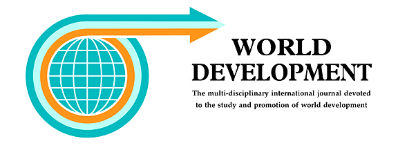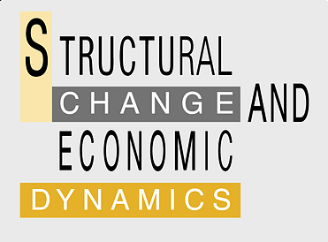【Call for Papers】2022 Annual Conference of the GReCEST
2022-06-17
2022 Annual Conference of the Global Research Consortium on Economic Structural Transformation (GReCEST)
November 14-16, 2022, Beijing, China
With the support of:



I. Introduction
The 2022 Annual Conference of the Global Research Consortium on Economic Structural Transformation (GReCEST) will take place (online and on site if feasible) on November 14-16, 2022, in Beijing, China. The conference will be administratively arranged by the GReCEST Secretariat – the Institute of New Structural Economics (INSE) at Peking University, with the support of three renowned journals, namely, World Development, Structural Change and Economic Dynamics, Journal of Economic Policy Reform.
Economic structural transformation can be defined as a process of shifting labour and other resources from lower-productive activities to higher-productive activities. Several studies demonstrate that a successful economic transformation supports the achievement of sustainable economic development. Understanding how such transformations unfold, it is therefore crucial for both developing and emerging countries operating in a globalized economic system, marked by a host of accelerating megatrends, such as climate change, urbanization, the digital transition, and increasing domestic inequalities.
Against this backdrop, our 2022 GReCEST conference aims to capture the economic, social and political complexity of economic structural transformations by bridging different academic disciplines and local expertise and invites scholars and practitioners to submit theoretical and empirical studies examining different aspects of economic structural transformation.
II. Submission Topics
Topics of submission may include, but are not limited to:
Inclusive and Sustainable Industrialization
The manufacturing sector has always been a key driver of economic growth for developing countries. Yet, sector-specific and stage-specific binding constraints stall structural change. This subtheme explores how industrial development can be harnessed for faster growth, greater inclusiveness and sustainability.
Key questions include: Whether and why have African countries suffered from the premature de-industrialization? What is the role of industrial parks in the early stage of industrialization? Does the role of agriculture and manufacturing differ over time for processes of structural change? How can industrial policy promote structural transformation and accelerate economic growth in underdeveloped economies? What is the strategic potential of triangular cooperation for sustainable industrialization?
Innovation and Transformative Change
In the wake of new technological advancement, it is increasingly questioned whether the digital transformation and other new technologies can facilitate the structural transformation and upgrading opportunities in global value chains for developing countries. This subtheme examines how new technologies may help to foster transformative change.
Key questions include: What are potential linkages between structural change and digitalization? To what extent does the digital divide face by low- and middle-income countries impact on process of structural transformation? How can new technologies help to achieve economic transformation while combating climate change and preserving biodiversity?
Development Financing
This subtheme investigates how development financing can foster structural transformation.
Key questions include: How can development financing institutions help to catalyse private capital to finance structural transformation? How to incubate green bond markets? How to scale up climate-resilient infrastructure financing?
III. Timeline
● 26 May 2022: Online submission opens for the conference
● 31 July 2022: Deadline for electronic submission of abstracts
● 31 August 2022: Feedback on the abstracts
● 30 September 2022: Deadline for electronic of first drafts of the papers
● 14-16 November 2022: Conference
IV. Directions and further information
Abstracts should be between 300 and 500 words. Each abstract should include: research questions, purpose of the paper, methodology and original contributions.
Papers should be between 8000 and 10000 words.
Provided enough submissions meet high-quality editorial standards, the best papers will be considered for a special issue proposal in a renowned peer-review journal in the field of international development and economics.
Abstract submissions as well as all related inquiries should be sent by email to: grecest@nsd.pku.edu.cn.
Label your message ‘Abstract for the GReCEST conference’.
About GReCEST
The Global Research Consortium on Economic Structural Transformation was initiated and established by the Institute of New Structural Economics of Peking University and was launched at the United Nations Headquarters in New York on May 18, 2016. The members of the Consortium include 36 research institutions and international organizations from both developed countries in Europe and the United States and developing countries in Asia, Africa, and Latin America. It is the first alliance established under the framework of the ‘Global South-South Cooperation Think Tank Network Alliance’. GReCEST aims to help developing countries achieve economic structure by promoting collaborative research, data collection, and country case studies to form a platform that facilitates the exchange of cutting-edge ideas, policy-practice interaction, and mutual learning in the field of economic structural transformation to facilitate its achievement of the United Nations 2030 Sustainable Development Goals.